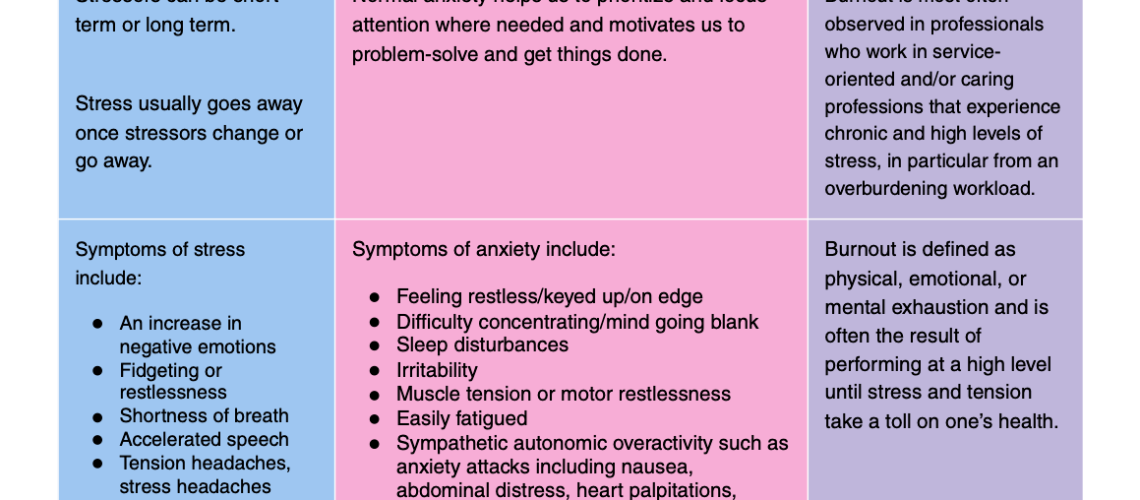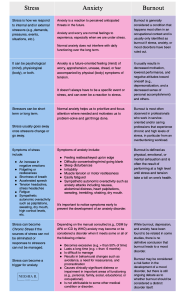Stress
Stress is how we respond to internal or external stressors such as demands, pressures, challenging events, difficult situations, etc.
Stress can involve changes that affect nearly every system of the body and influence how we feel and behave.
Our body’s response to stressors can be psychological (in our mind), physiological (in our body), or both; stressors can be short term or long term.
In general, normal stress usually goes away once stressors change or go away. If sources of stress can not be eliminated or responses to stressors can not be managed, then stress can become chronic stress.
Stress can also become a trigger for anxiety.
Anxiety
Anxiety is a future-oriented feeling in our mind of worry, apprehension, or fear accompanied by physical symptoms of tension in our body. It is a reaction to perceived anticipated threats in the future.
Anxiety and worry are normal feelings to experience, especially when we are under stress, and normal anxiety generally does not interfere with daily functioning over the long term. In fact, normal levels of anxiety can help us to prioritize and focus attention where it is needed and can motivate us to problem-solve and get things done.
Normal anxiety is not always negative, though it may be thought of and experienced that way.
Burnout
Burnout is defined as physical, emotional, or mental exhaustion and is often the result of performing at a high level until stress and tension take a toll on one’s health. It usually results in decreased motivation, lowered performance, and negative attitudes towards oneself and others.
It is most often observed in professionals who work in service-oriented professions that experience chronic and high levels of stress, in particular from an overburdening workload. In fact, burnout is most often considered a condition that happens in an occupational context, and is usually only classified as burnout if other mood disorders have first been ruled out.
Link to full chart: Stress vs. Anxiety vs. Burnout chart






